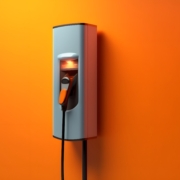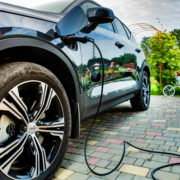The Future of Smart Home Technology
The way we live in our homes is changing quickly. What once felt futuristic is now becoming standard: lights that respond to voice commands, thermostats that learn your habits, and security systems that can tell the difference between your family and a stranger.
At High West Electric, we’ve watched this transformation firsthand. As electrical experts serving our community, we see smart home technology not as a luxury, but as the next natural step in how people manage their homes, making them more energy-efficient, secure, and comfortable than ever before.
Let’s take a closer look at how these innovations are shaping the homes of the future and why investing in smart technology today can save you money and simplify your life for years to come.
Smart Home Technology: Where Convenience Meets Efficiency
Smart home technology refers to the integration of connected devices that can be controlled remotely, often through your phone, tablet, or even your voice.
What makes it “smart” is not just automation, but adaptability. Modern systems learn your patterns and optimize energy usage automatically.
For example, a smart thermostat can adjust the temperature based on your schedule and preferences. When you leave for work, it can lower the heat or AC to save energy; when you’re on your way home, it restores your ideal comfort level before you arrive.
The same goes for lighting, plugs, and appliances, you can set schedules, create “away” modes, or even turn off everything with one voice command. The convenience is unmatched, but the savings can be surprising too.
How Smart Technology Saves You Money
Energy efficiency is one of the biggest advantages of smart homes, and it’s where homeowners often see the most immediate return on investment.
A smart thermostat alone can save up to 10–15% on heating and cooling costs each year. Smart plugs and lighting systems can reduce energy waste from devices left on standby or lights left burning unnecessarily.
But the real financial benefits go beyond energy savings.
- Smart meters and monitoring systems give you real-time insight into how much electricity different parts of your home consume. Knowing that your old refrigerator or inefficient water heater is using more power than it should empower you to make smarter upgrade decisions.
- Automated load balancing can help manage when high-draw appliances operate, preventing surges that might raise your utility bills.
- Preventative alerts from smart systems like detecting a water leak, faulty wiring, or power anomaly can save thousands in repair costs before issues escalate.
At High West Electric, we help homeowners design systems that pay for themselves over time. When technology is installed correctly and integrated thoughtfully, smart homes aren’t just convenient; they’re cost-effective.
Smart Homes Make Safety Smarter
Safety has always been at the core of what we do at High West Electric. The next generation of smart technology takes home protection to a whole new level.
Today’s systems can combine security, fire prevention, and electrical monitoring in ways that work together seamlessly.
- Smart smoke and carbon monoxide detectors send instant alerts to your phone, even if you’re not home.
- Connected cameras and doorbell systems let you monitor your property in real time and even communicate with visitors remotely.
- Smart locks allow you to grant or revoke access with a tap no more hiding spare keys or worrying if you locked the door.
- Electrical safety sensors can detect power fluctuations, overloaded circuits, or unusual activity often before they cause damage.
As electricians, we always emphasize that smart home safety isn’t just about adding gadgets, it’s about integrating them safely and professionally. That’s where our expertise comes in. Proper installation ensures systems communicate correctly, remain secure from cyber threats, and operate safely with your home’s electrical infrastructure.
Comfort, Customization, and Control
Smart homes offer a level of comfort and personalization that was unthinkable even a decade ago.
Imagine waking up to soft lighting, the thermostat warming your bedroom just before your alarm goes off, and your coffee maker starting automatically. Or picture your entire home responding to a simple voice command “Goodnight”, to turn off lights, lock doors, and lower the temperature.
That’s not science fiction it’s daily reality for homeowners embracing smart technology today.
The ability to create “scenes” or presets tailored to your lifestyle is one of the greatest appeals. Movie night? One tap can dim the lights, close the blinds, and power on your home theater. Leaving for vacation? Activate an away mode that simulates occupancy to deter intruders.
At High West Electric, we love helping customers design systems that fit their lives. Whether you prefer minimal automation or want your entire home ecosystem connected, smart technology makes comfort truly customizable.
The Role of Professional Installation
While many smart devices are designed for DIY setup, integrating them safely and effectively across your electrical system requires expertise.
A professional electrician ensures your home’s wiring can handle the increased load and that devices are networked properly for reliability and security.
We often see homeowners frustrated by poor Wi-Fi connections, underpowered circuits, or compatibility issues between devices. With professional installation, you avoid those headaches and ensure your investment performs at its full potential.
At High West Electric, we specialize in future-ready electrical design. Whether you’re building new, renovating, or upgrading, we can install the wiring and infrastructure needed to support your smart home for years to come.
Looking Ahead: The Smart Homes of Tomorrow
The future of smart home technology is bright and interconnected. In the coming years, expect to see even greater automation, powered by artificial intelligence and clean energy.
Homes will soon “talk” to the electrical grid, adjusting usage based on peak demand or renewable availability. Smart panels will balance solar power, battery storage, and household needs automatically.
For homeowners, that means lower bills, greater sustainability, and homes that quite literally think for themselves.
At High West Electric, we’re not just watching this evolution we’re helping power it. Our mission is to make sure every client can enjoy the safety, savings, and comfort that come from a well-designed smart home system.
What Does This Mean For You
Smart home technology isn’t just about modern convenience it’s about living better. It helps you save money, protect your home, and enhance everyday comfort.
As technology evolves, one thing remains constant: a well-wired foundation makes everything possible.
If you’re ready to future-proof your home, talk to the experts at High West Electric. We’ll design a smart electrical system that fits your lifestyle today and grows with you tomorrow.
High West Electric is based in Denver, CO, and serves the entire metro area. Our customer service-based approach ensures that each client enjoys the process from installation to the end product – no matter the size of the job. Our goal is to be YOUR electrician and offer an experience that goes Beyond the Wires. Visit our website to learn more.







